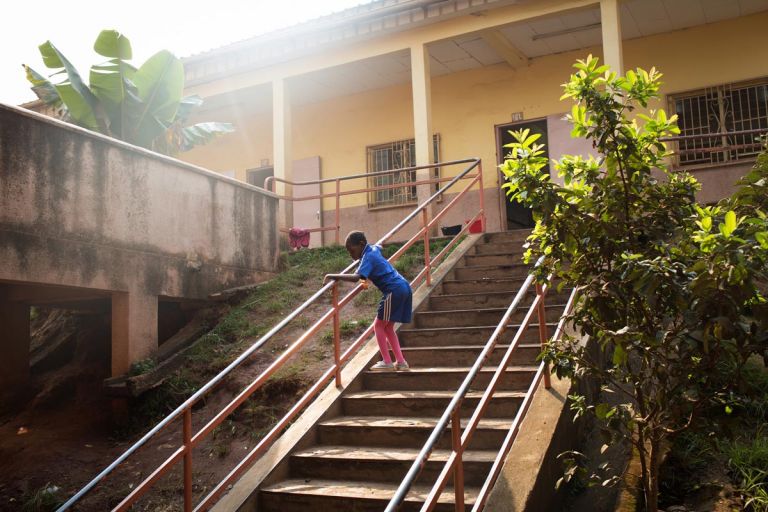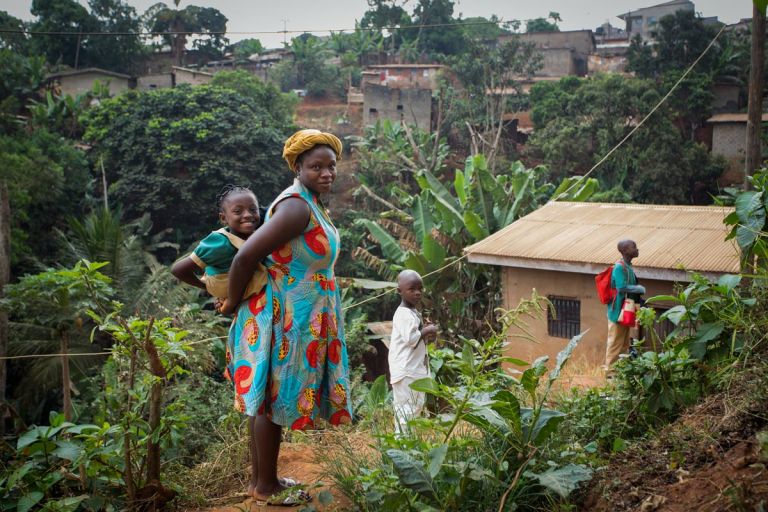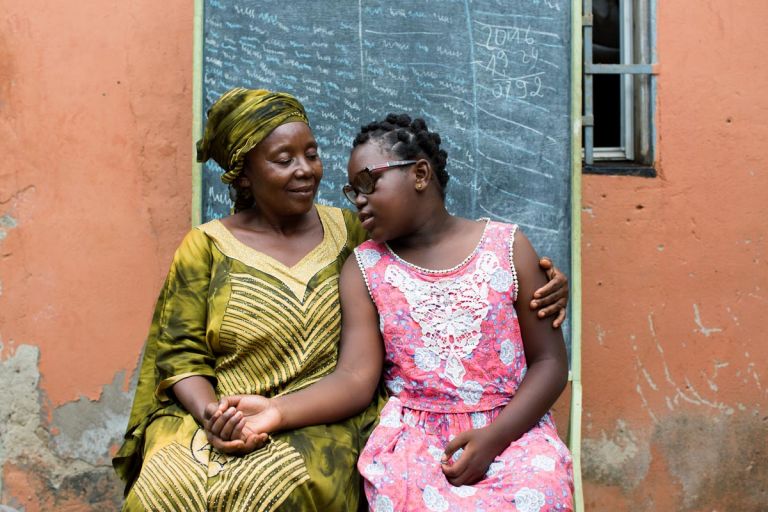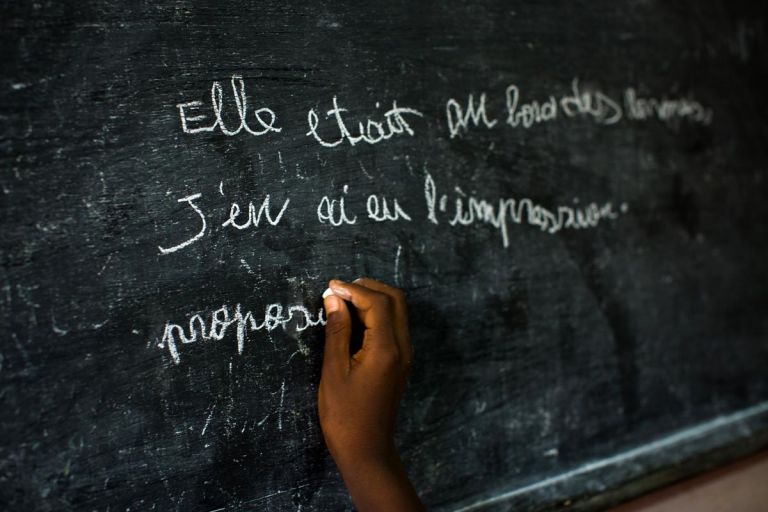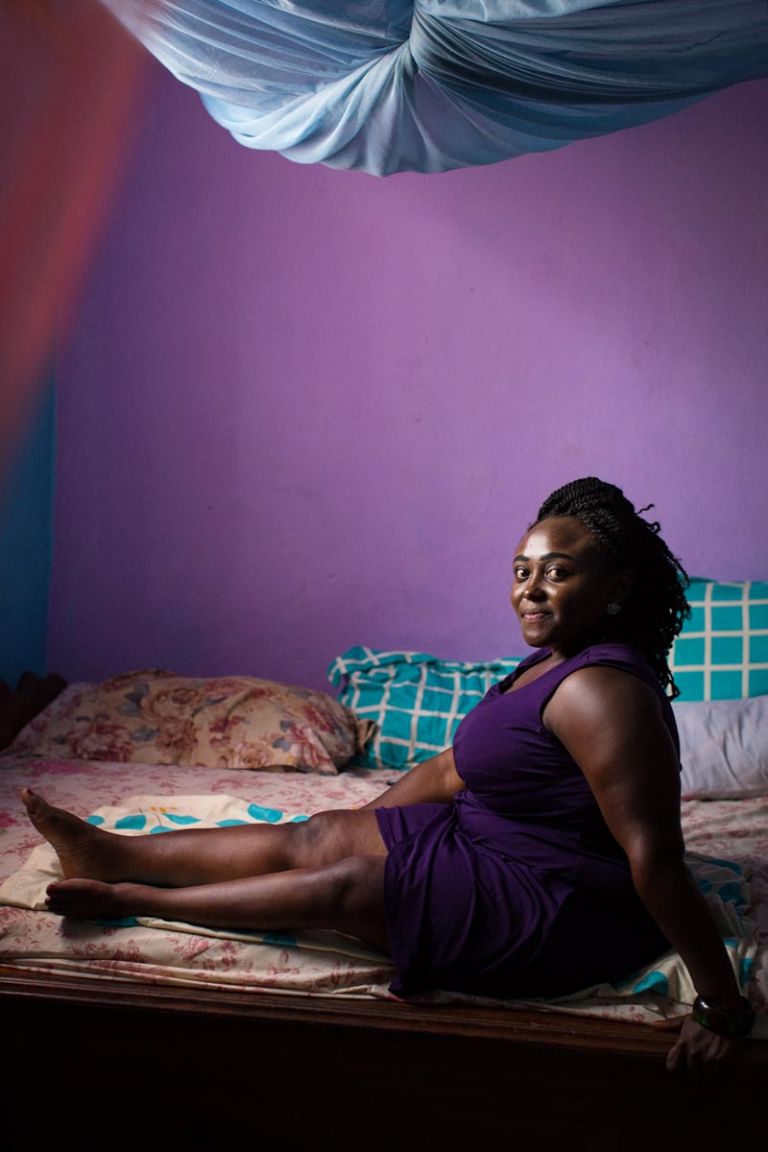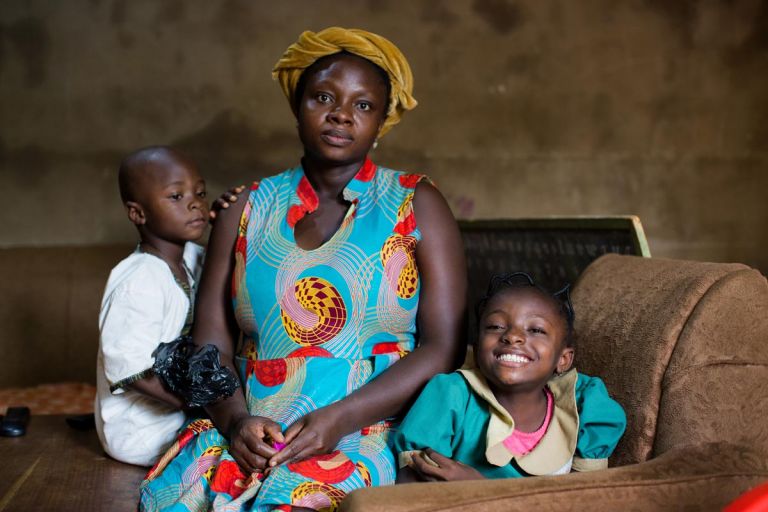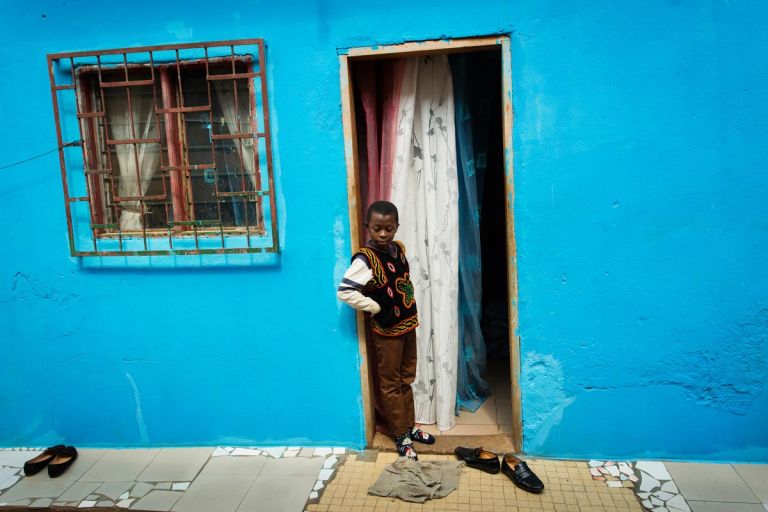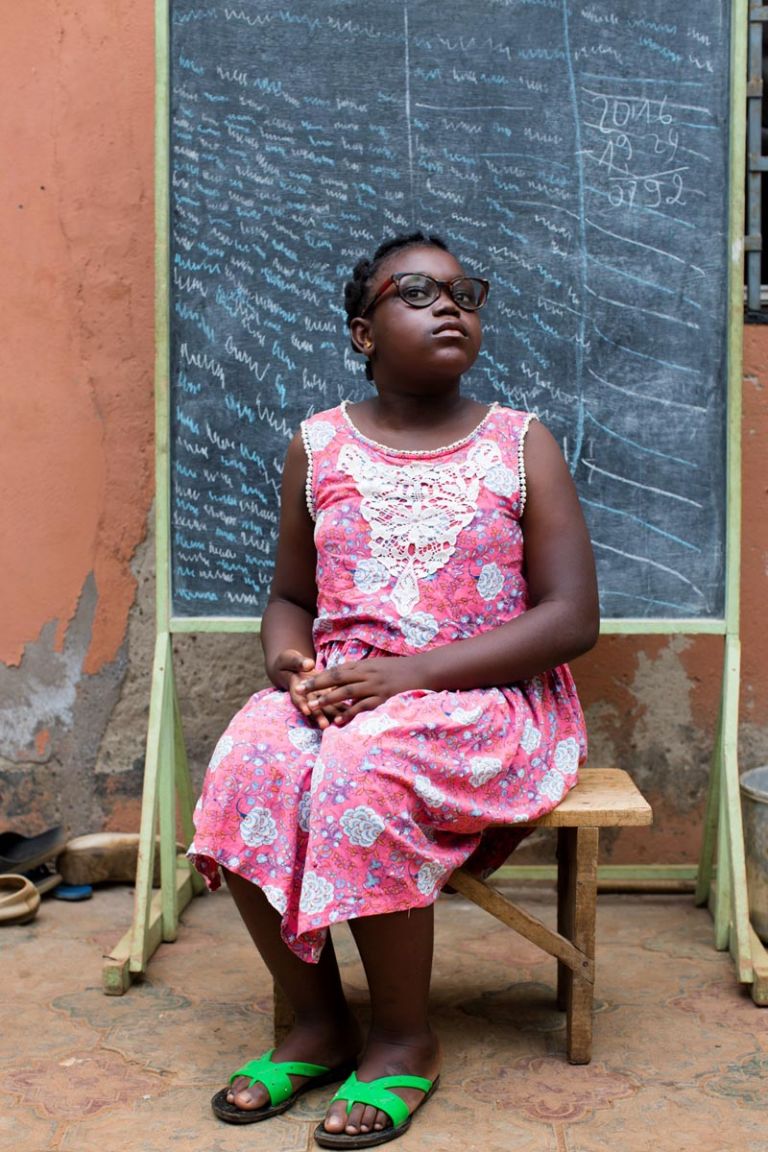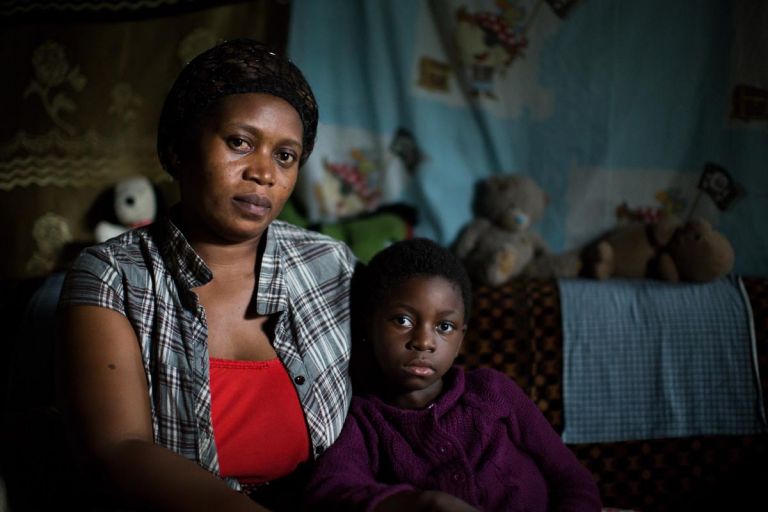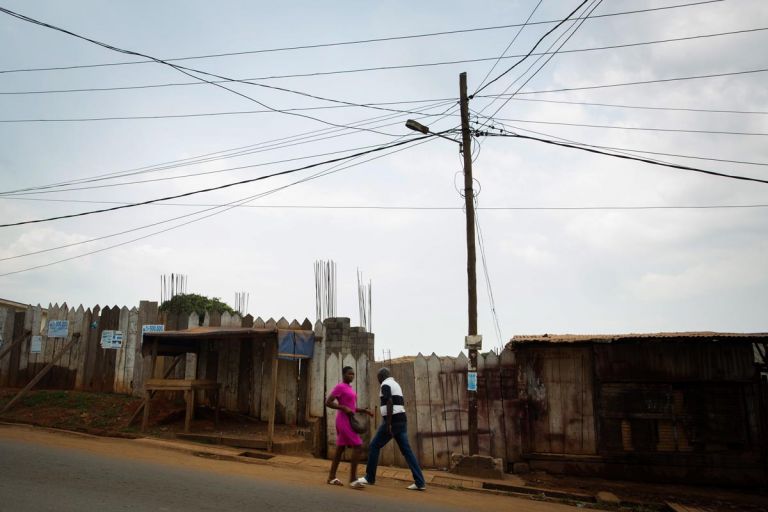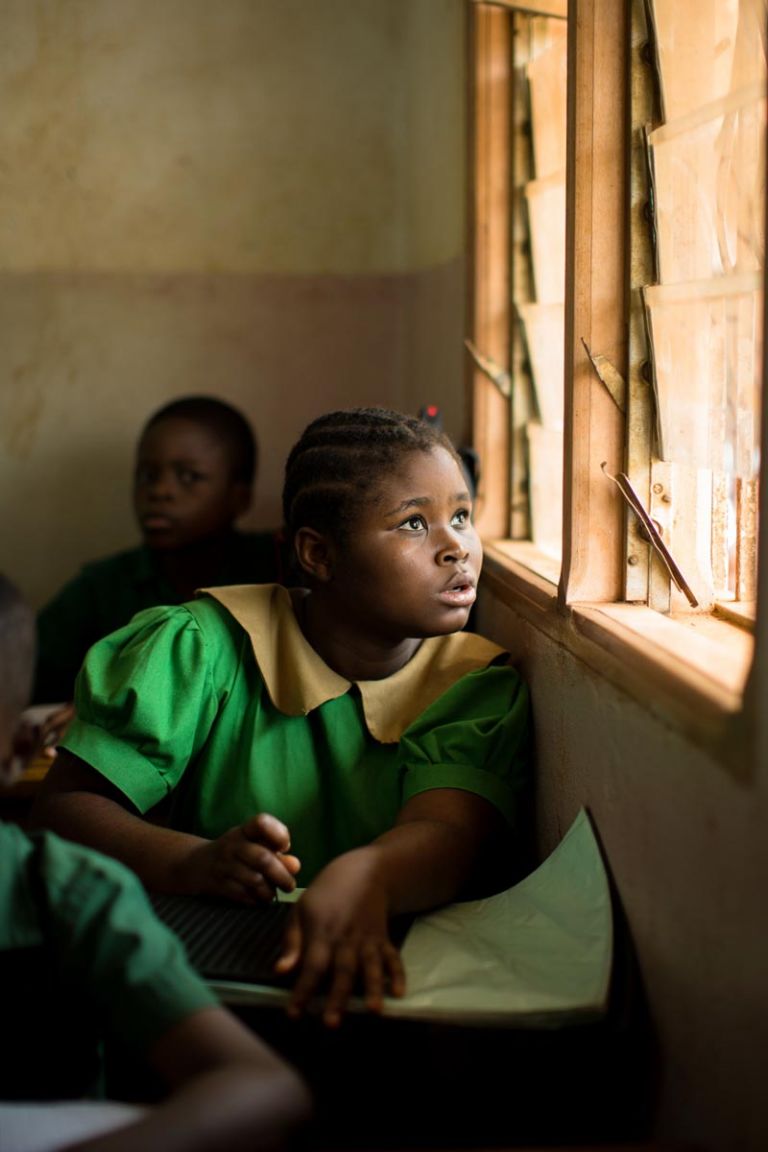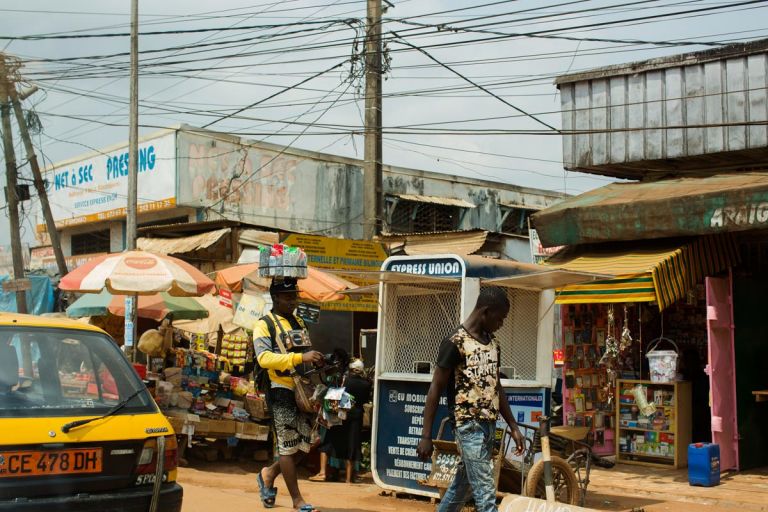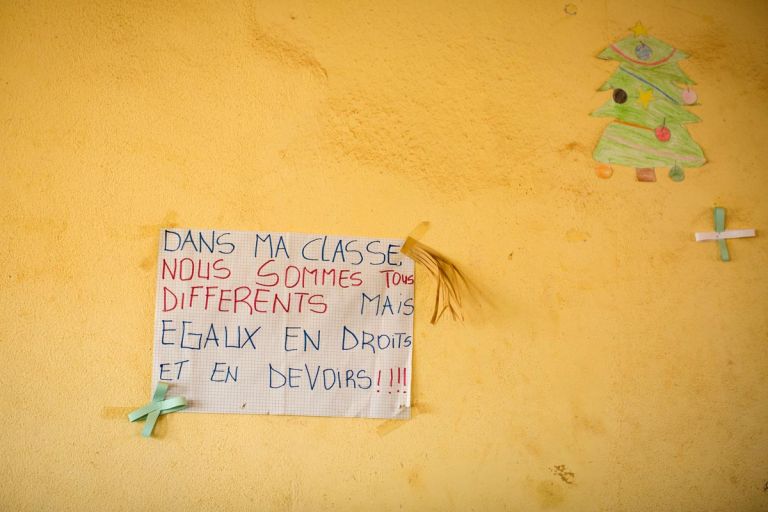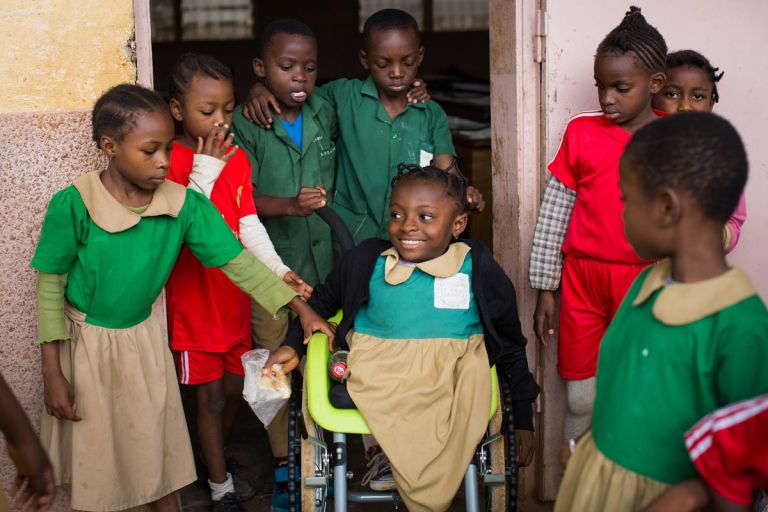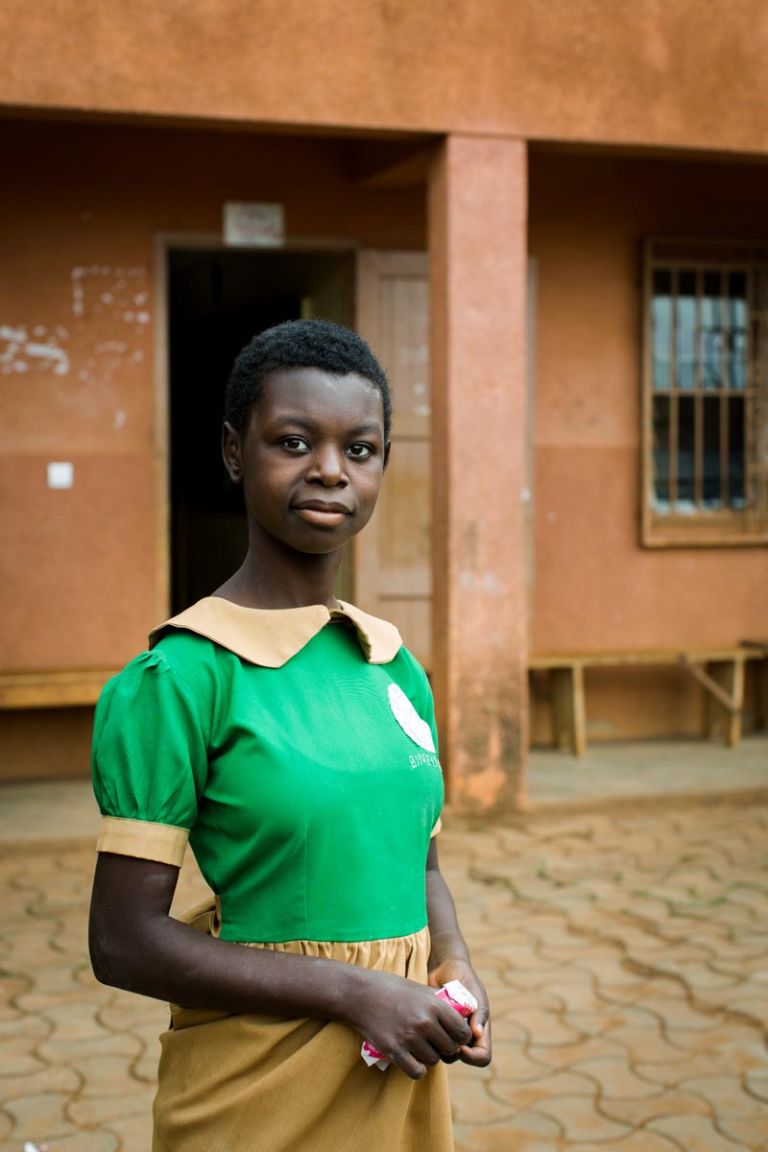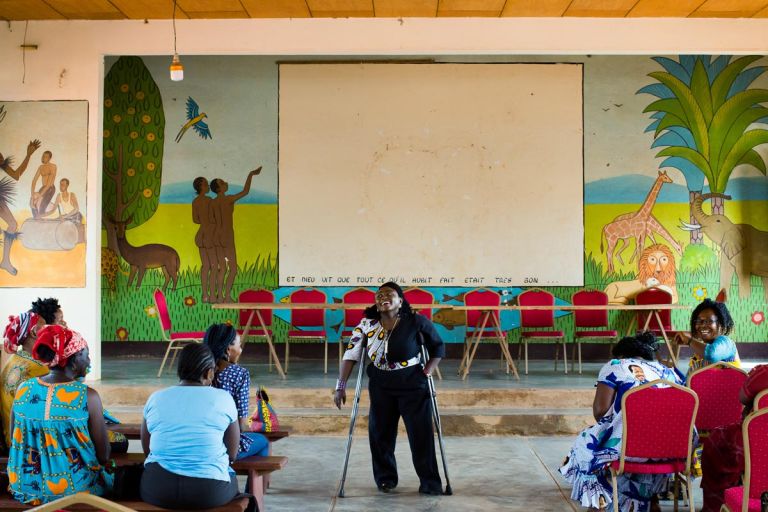Nearly 80% of people with disabilities live the world’s poorest countries. Inclusion is a human right, but implementing it challenges even countries like Germany.
But what about a small African country like Cameroon, where only 10% of the population have a fixed income, where a civil war continues to take its toll and the president of almost 40 years is rather disinterested.
Today there are 26 inclusive schools in the capital of Yaoundé, both private and state-run, thanks to the power house that is Rita Agum, 32, an inclusion lobbyist at Promhandicam, a local organization for people with disabilities.
Almost abandoned at a young age because of her polio infection, she picked up two things from her parents: a faith in herself and the belief that she is not different from other kids. This has changed the world for her and keeps inspiring others.
